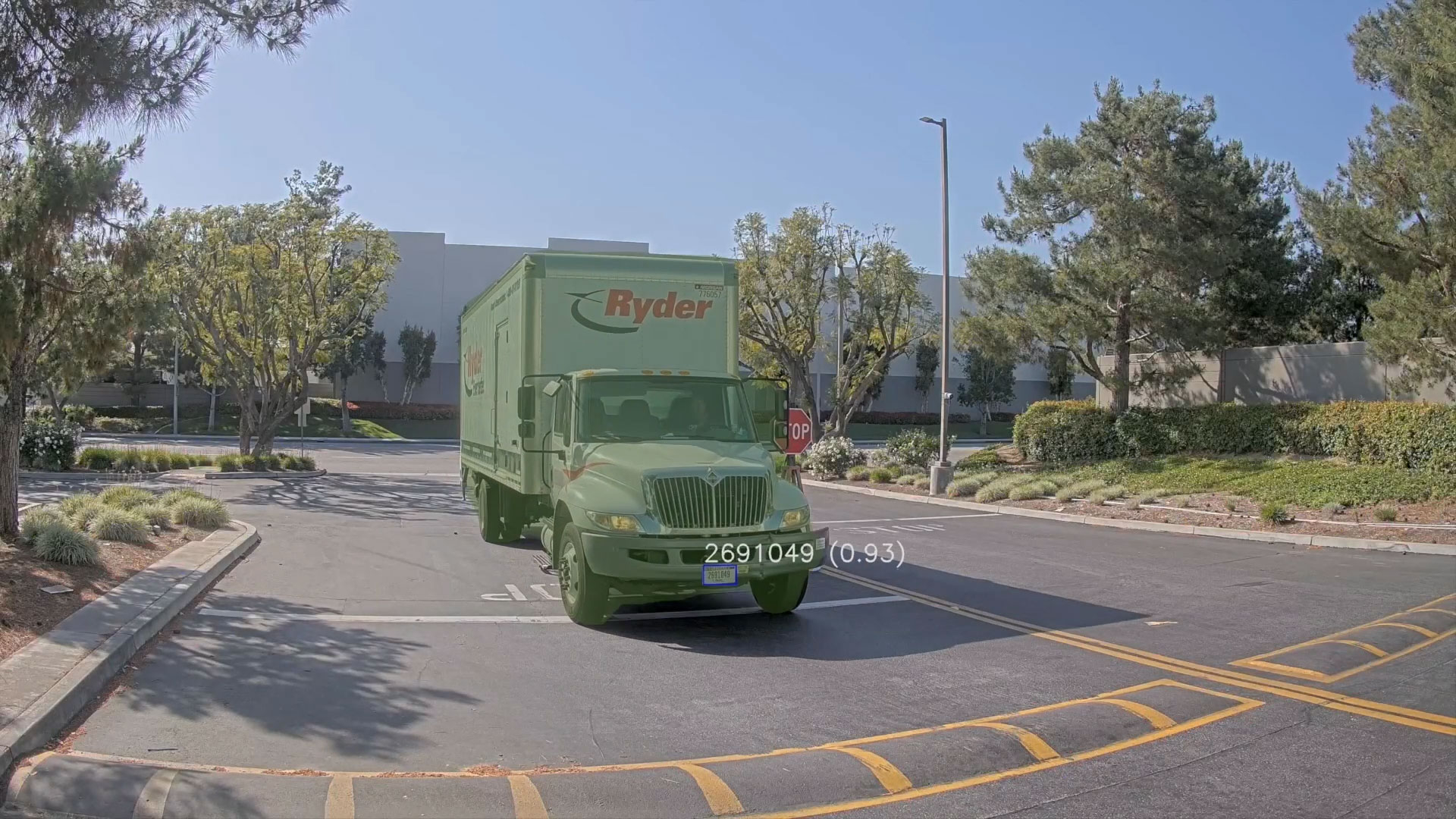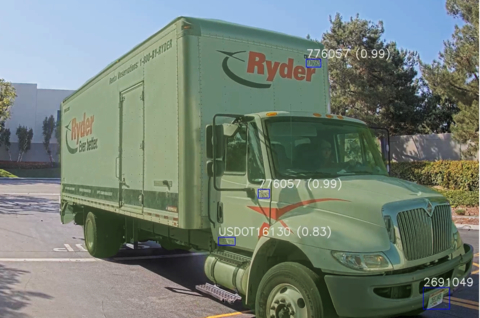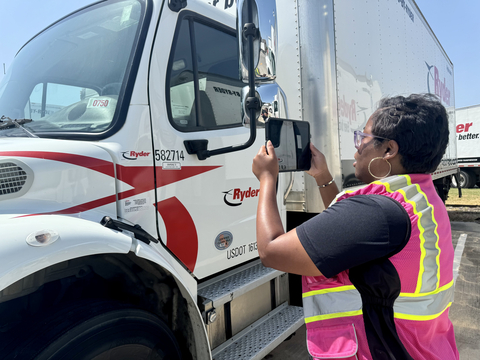MIAMI & AUSTIN, Texas--(BUSINESS WIRE)--Ryder System, Inc. (NYSE: R), a leader in supply chain, dedicated transportation, and fleet management solutions, and Terminal Industries (“Terminal”), which develops artificial intelligence (AI) platforms to digitize yard operations, announce the first successful pilot program leveraging Terminal’s computer-vision technology to automatically index and analyze trucks and trailers flowing in and out of the warehouse yard. Since January, the ongoing pilot at a Ryder e-commerce fulfillment center in City of Industry, California, has processed more than 10,000 truck detections, achieving 99% accuracy in capturing license plates and Department of Transportation (DOT) numbers.
“We have not seen this kind of accuracy with computer-vision technology previously, so this is a significant milestone in the race to modernize what is currently a very manual and inefficient process across the industry,” says Karen Jones, CMO and head of new product development at Ryder. “It’s one thing to build a text-recognition algorithm that works on static objects or in an academic setting, but it’s quite another in the real world, where we’re dealing with obscured license plates, hand-written DOT numbers, inclement weather, and any number of scenarios that affect visibility for cameras.”
To compensate for common errors in recording this data, Terminal’s computer-vision technology uses machine learning by adding incremental knowledge to continuously improve. And integration with third-party databases provides full vehicle profiles beyond what cameras can see.
“We are building the language of the yard,” says Max Constant, CEO of Terminal. “Ryder’s data is a gold mine for training. Most people believe more data is the answer, but it’s really about having the right data – the noisy, real-world data. That’s a major key to developing our core technology, so we can leverage this powerful tool – not just for one use case but across a broad range of applications to optimize yard operations in ways not yet evident in the industry.”
In many yards today, operators manually record license plate, DOT, and trailer numbers; ensure trucks have appointments and are hauling the correct trailers; and keep accurate inventory of available vehicles. This manual process can lead to bottlenecks, delays, increased driver and labor costs, and idle assets.
According to the American Trucking Associations (ATA), trucks move more than 72% of all freight by weight, equating to more than $10 trillion annually. Yet, Terminal estimates that more than 90% of yards lack the technology to operate efficiently, costing the industry up to $146 billion each year.
“While there are many emerging players and technologies focused on solving specific pain points, Max and his team see a much bigger picture. Ryder shares that vision, and we look forward to exploring the areas where we can leverage Terminal’s core technology to bring that value to our customers,” adds Jones.
In July, Ryder and Terminal launched a second pilot, using Terminal’s technology on mobile tablets to auto-capture available inventory at a Ryder truck rental and maintenance facility in the Dallas-Fort Worth area.
Last summer, Ryder’s corporate venture capital fund RyderVentures participated in Terminal’s seed funding round which raised a total of $31 million.
About Ryder System, Inc.
Ryder System, Inc. (NYSE: R) is a fully integrated port-to-door logistics and transportation company. It provides supply chain, dedicated transportation, and fleet management solutions, including warehousing and distribution, contract manufacturing and packaging, e-commerce fulfillment, last-mile delivery, managed transportation, professional drivers, freight brokerage, nearshoring solutions, full-service leasing, maintenance, commercial truck rental, and used vehicle sales to some of the world’s most-recognized brands. Ryder provides services throughout the United States, Mexico, and Canada. In addition, Ryder manages nearly 250,000 commercial vehicles, services fleets at 760 maintenance locations, and operates nearly 300 warehouses encompassing more than 100 million square feet. Ryder is regularly recognized for its industry-leading practices; technology-driven innovations; corporate responsibility; environmental management; safety, health and security programs; military veteran recruitment initiatives; and the hiring of a diverse workforce. www.ryder.com
About Terminal Industries
Terminal Industries develops novel AI platforms that digitize the yard. Terminal is headquartered in Austin, Texas, with offices in San Francisco and UK. www.terminal-industries.com
Note Regarding Forward-Looking Statements: Certain statements and information included in this news release are “forward-looking statements” within the meaning of the Federal Private Securities Litigation Reform Act of 1995. These forward-looking statements, including our expectations with respect to Terminal Industries and the current and future capabilities of artificial intelligence (“AI”) and other related technologies, are based on our current plans and expectations and are subject to risks, uncertainties and assumptions. Accordingly, these forward-looking statements should be evaluated with consideration given to the many risks and uncertainties that could cause actual results and events to differ materially from those in the forward-looking statements including those risks set forth in our periodic filings with the Securities and Exchange Commission. New risks emerge from time to time. It is not possible for management to predict all such risk factors or to assess the impact of such risks on our business. Accordingly, we undertake no obligation to publicly update or revise any forward-looking statements, whether as a result of new information, future events, or otherwise.
ryder-org





